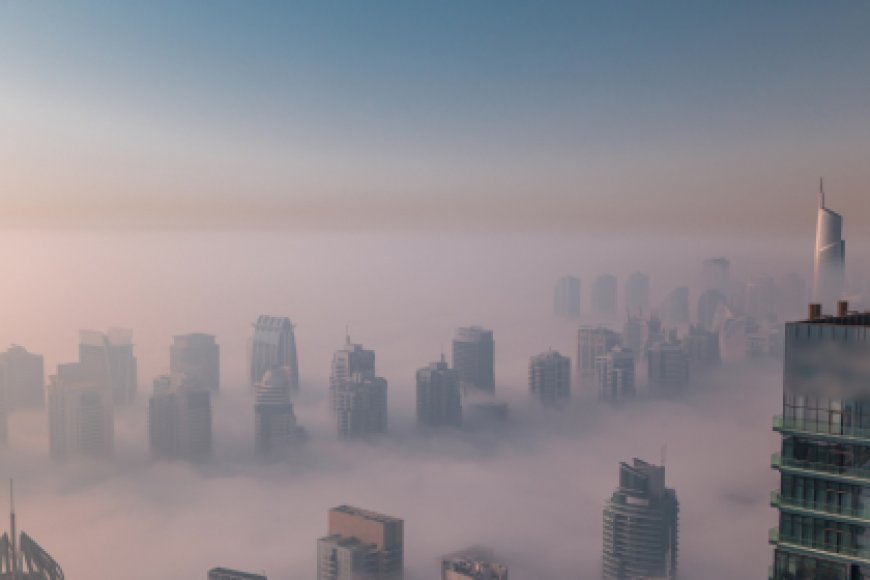Dubai Records One of the World’s Worst Air Qualities
Dubai ranks among the world’s top five most polluted cities, with hazardous AQI levels threatening public health and raising environmental concerns

Dubai known for its futuristic skyline and world-class lifestyle is now battling one of its biggest environmental challenges.
According to recent global air quality reports, the city has entered the list of the top five most polluted cities in the world, with an Air Quality Index (AQI) exceeding 160, a level classified as “unhealthy.”
This means the city’s air quality is now comparable to some of the world’s most polluted regions, including Delhi, Lahore, and Dhaka, highlighting an urgent need for cleaner-air solutions.
What’s Behind Dubai’s Rising Pollution?
Environmental experts point to a mix of urban growth and natural factors that have worsened the city’s air quality:
-
Massive Construction: Constant building activity releases fine dust and particulate matter into the air.
-
Heavy Vehicle Emissions: Traffic congestion produces high levels of nitrogen oxides and carbon pollutants.
-
Desert Dust Storms: Strong desert winds blow large quantities of PM2.5 and PM10 particles across the city.
-
Industrial Output: Power generation and industrial activity continue to emit harmful gases and smoke.
These combined factors create a toxic air mix that is now visible even in the city’s hazy skyline.
Health Experts Warn of Growing Risks
Doctors in Dubai and across the UAE are sounding the alarm as prolonged exposure to high AQI levels poses serious health risks.
Potential Health Effects Include:
-
Breathing difficulties, sore throat, and chronic coughing
-
Worsening of asthma and respiratory conditions
-
Increased fatigue, headaches, and heart strain
-
Long-term risk of lung and cardiovascular diseases
Medical experts urge residents to limit outdoor activities, especially children, pregnant women, and elderly individuals, during high-pollution days.
How Dubai Compares Globally
According to IQAir’s global air quality index, Dubai’s AQI has fluctuated between 153 and 165, placing it in the top 10 most polluted cities multiple times in 2025.
In some instances, Dubai ranked 4th worldwide, showing that even developed urban centers are not immune to environmental decline.
Environmentalists describe this as a “wake-up call” for Gulf cities to invest more in air-quality management and pollution control.
Government Takes Action
The UAE government has long prioritized environmental health and launched several projects aimed at improving air quality:
-
Installation of smart pollution monitoring systems across major cities
-
Implementation of green building standards to reduce construction emissions
-
Promotion of electric vehicles and renewable energy projects
-
Stricter industrial emission regulations and dust control protocols
Despite progress, experts emphasize that local enforcement and public awareness are crucial for real improvement.
How Residents Can Protect Themselves
Until Dubai’s air quality improves, residents can take several steps to safeguard their health:
Check live AQI updates before outdoor activities.
Use air purifiers at home and workplaces.
Keep windows closed during dusty conditions.
Wear N95/KN95 masks when AQI levels rise.
Stay hydrated and maintain a balanced diet rich in antioxidants.
These small actions can reduce short-term exposure and protect respiratory health.
The Path Forward for a Cleaner Dubai
Dubai’s appearance on the world’s worst-air list underscores the challenge of balancing rapid urbanization with sustainability.
As the UAE prepares to meet its Net Zero 2050 goals, city leaders are expected to adopt smarter mobility, renewable energy, and stricter environmental policies.
For now, awareness, precaution, and innovation remain the city’s best tools to breathe cleaner air once again.
For more updates,visit Nation bytes

 Israr Ahmed
Israr Ahmed